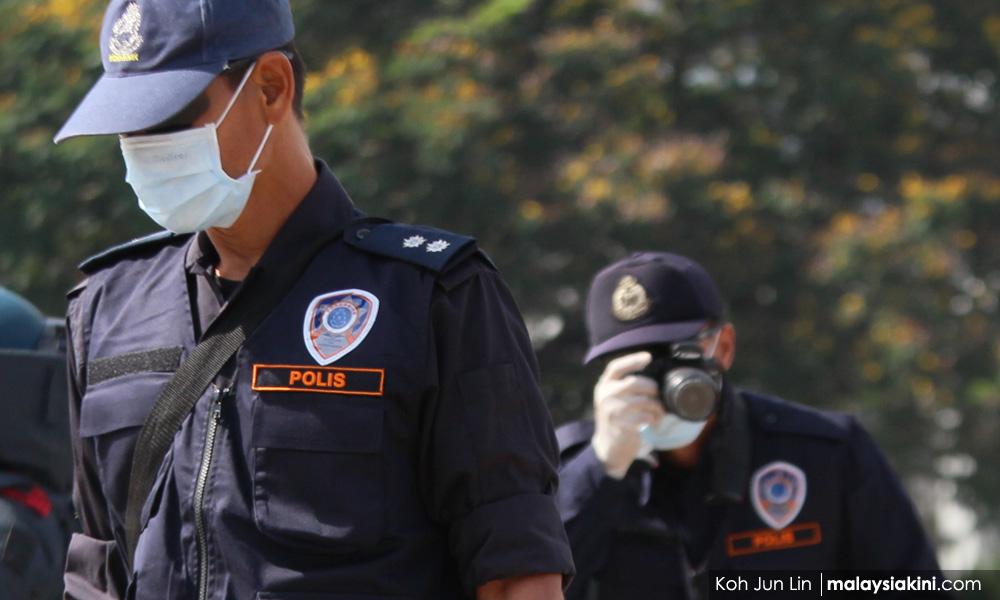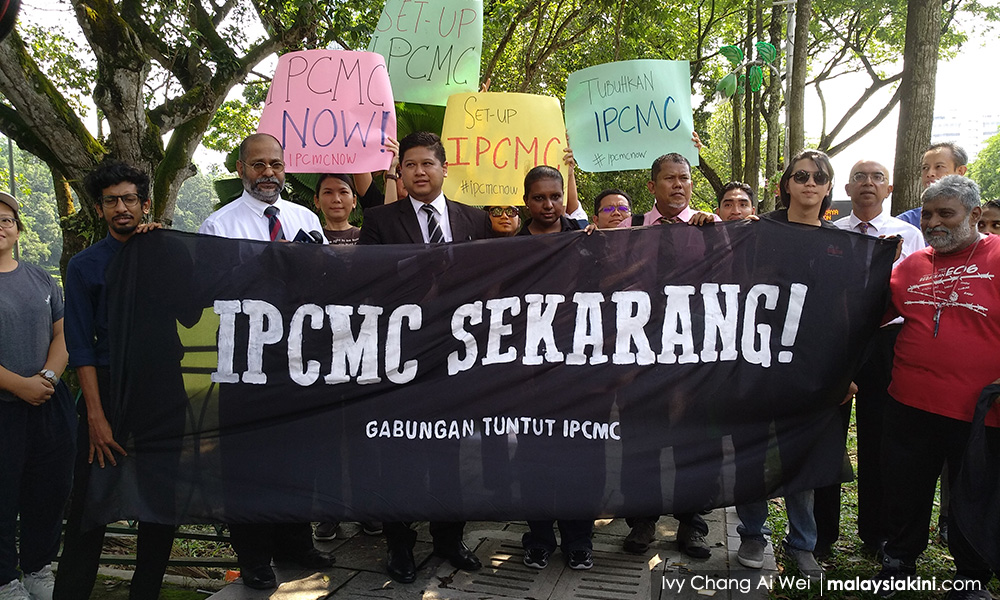I came across the results of a recent study conducted by the Science and Wellness Organization (SWO) on the social problems of Indian Malaysians. The study indicates that gangsterism remains a major issue.
Three important data from the study are:
1. 72 percent of gang members identified in Malaysia are Indians.
2. There are a total of 28,926 Indians identified as being gang members.
3. The Indian community has the highest rate of gangsterism in Malaysia.
The study also highlighted several factors, including poor parental guidance, an apathetic community and socio-economic backgrounds playing a key role.
Despite the fact that overcoming the unfortunate state would require long-term government intervention, I strongly feel that much attention has to be given on several important aspects immediately.
The following are my suggestions to the government:
1. Increase the intake of Indian officers into D9
This suggestion might sound cliché but I strongly feel that it will play a key role in helping the Royal Malaysian Police (PDRM) obtain a better and comprehensive picture of gangsterism within the Indian community.
The implementation of such a policy played an important role in reducing the crime rate among the Indian community for several years during and after the Ops Cantas period. Nevertheless, this policy was put on the back-burner following the arrest of a few Indian PDRM officers due to their alleged involvement in organised crime activities.

I believe it’s time for PDRM to stop generalising all police officers of Indian origins based on the actions of a few Indian officers. With almost 29,000 Indians identified as gang members, increasing the intake of Indian officers into PRDM’s D9 (Special Investigation Department) is a key move that PDRM should consider seriously if it seeks to reduce the crime rate among Indians.
2. Consider the re-establishment of Stafoc, Sting and Stagg
Following the sharp increase of organised crime activities in the early part of the last decade, the Home Ministry under the former BN government established several special units in the PDRM with the aim of combating organised crime more effectively.
These units, namely the Special Task Force on Organised Crime (Stafoc), Special Tactics and Intelligence Narcotics Group (Sting), and Special Task Force for Anti-Vice, Gambling and Gangsterism (Stagg) made immediate impacts right after their establishment.
Unfortunately, the success stories of all these groups came to an end after the 14th general election when the Pakatan Harapan government decided to dissolve the units on the basis of alleged rumours that these units were involved in protecting gangster groups which were later denied by then home minister and now Prime Minister Muhyiddin Yassin.
Nevertheless, the effectiveness of these special units in combating organised crimes, illicit drug trafficking and gangsterism in Malaysia is still undeniable. Therefore, I propose to the Home Ministry to look into the possibilities of re-establishing these units.
I strongly believe such a decision would not just enable but also empower the police force to combat the alarming increase of crime among not just the Indian community but all communities in Malaysia.
3. Identify and investigate leakages within the PDRM
The Home Ministry together with the Integrity and Standard Compliance Department of PDRM must also start working together effectively in identifying and investigating leakages within PDRM.
I strongly believe no crime, be it gangsterism or drug trafficking, can survive without some sort of assistance from all members of the police force. This is not mere assumptions but has been proven over the years with various cases of high-ranking police officers being arrested.

The Independent Police Complaints of Misconduct Commission (IPCMC) might prove to be an effective solution, but it is strongly opposed by a majority of members of the force due to several factors.
Hence, with not many options left, it is now up to the Integrity and Standard Compliance Department of PDRM to ensure that corruption within the department are identified and thoroughly investigated.
If we can't control the leakages within the department, then it is of no use for any to talk about how we can overcome organised crime. This definitely requires strong political will from both the government and the opposition, and most importantly, all enforcement agencies so that they could keep one another in check, and it is also the only realistic way to curb leakages from within the department.
4. Conduct early intervention on students identified as having tendencies to be part of crime groups
The Home Ministry and the PDRM must also start working closely with the Education Ministry to identify school students who show tendencies in joining criminal groups.
This enables relevant authorities to conduct the required intervention process to ensure we can reduce their inclination towards gangs in stages.
Nevertheless, there's an important thing that all policymakers and enforcement officers must understand before implementing such a process. We must not repeat the past mistakes of making the generalisation that all students have tendencies of being members of these gangs. The fact is they are not. Students have different backgrounds and most importantly, have different reasons leading them to be part, or at least be, inclined towards gangsterism.
We must first identify and understand the reasons (root cause) before we can conduct an intervention. For example, it is of little use providing counselling to a student identified as being part of a gang because of poverty.
Counselling is not going to end poverty for the student or his family, but a decent job opportunity with at least a basic monthly income for one of his parents might. Only with such an effective and comprehensive intervention process that we might be able to overcome participation or tendencies to join gangs at an early stage.
I believe that if the above-mentioned suggestions are implemented comprehensively, we would be able to see a sharp reduction in organised crime activities generally, not just among Indians.
Besides various socio-economic intervention plans that could be implemented, along the due process and with stricter enforcement, we would be able to overcome or at least put a lid on such activities.
The government and the PDRM must consider the implementation of such intervention plans immediately if they are serious in their commitment to combat organised crimes.
SIVARRAAJH CHANDRAN is MIC vice-president. - Mkini
The views expressed here are those of the author/contributor and do not necessarily represent the views of MMKtT.




No comments:
Post a Comment
Note: Only a member of this blog may post a comment.